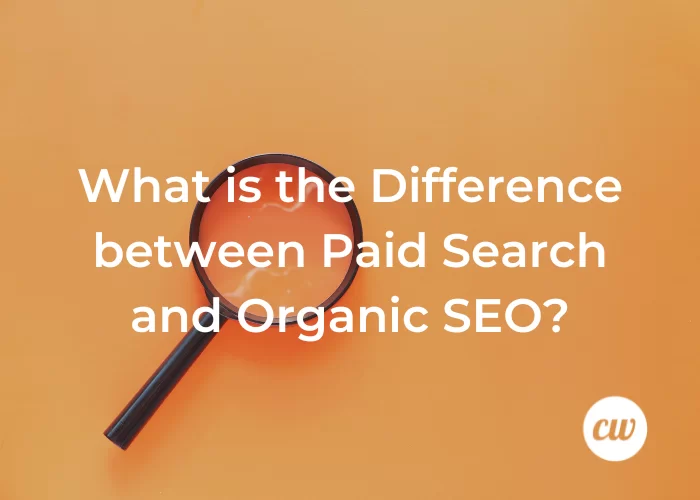The primary concept of SEO is imperative in enhancing the ranking of a website on the SERPs. However, not all SEO activities are the same as each other. Based on your business objectives, the geographical area that your business operates, or the demographic of your target market, you may require local SEO or organic SEO or both. It is very important to know the difference between local and organic SEO when developing a sound SEO marketing plan that will increase traffic and sales.
This article aims to elaborate the differences between local and organic SEO, their features and how they can complement each other to enhance the company’s web visibility.
Definition of Local SEO and Organic SEO
Local SEO therefore means the process of ensuring that your online presence is optimized to target local business from people who search for certain services or products online. These searches are mostly local, and therefore the users are searching for some service or product in a certain locality. Local SEO is very relevant to local businesses such as restaurants, plumbers, lawyers, and any other business that has a physical business location or operates in a particular locality.
While organic SEO is designed to increase a website’s ranking on a more general and global level. Organic SEO is useful in getting your site to the top of SERPs for certain keyword phrases irrespective of the location of the user. It is a method of improving website content and its components such as keywords, backlinks, and other technical features to achieve high rankings for certain keywords.
Whereas, local SEO is about targeting a specific location or area, organic SEO is all about targeting broader more general keywords which can be used anywhere in the world.
Key Differences Between Local and Organic SEO
Target Audience
The primary difference between local and organic SEO is the audience each strategy targets.
- Local SEO aims at users who are in search of local products or services. For instance, a user can use the phrases like “best Italian restaurant near me” or “plumber in Chicago.” Here, the search engine gives the results that are relative to the geographical location of the end-user.
- Organic SEO focuses on a broader audience that may not necessarily be location-specific. Users might search for general terms such as “how to fix a leaking faucet” or “best SEO practices,” and the search engine provides results based on the relevance and authority of the content, without regard to the user’s location (unless explicitly stated).
Search Results and Ranking Factors
The format of result presentation of the search engines for both local and organic search is not the same.
- Local SEO Results: Local search results are usually displayed in the local pack or map pack, which is the top three business listings corresponding to the query and the map. This pack is ranked higher than the organic search for almost all local keywords. The factors that determines ranking in local pack includes location to the user, relevance and the rating of business.
- Organic SEO Results: Organic search results are placed below the local pack, if present, and their ranking depends on the relevance, quality of the content, number and quality of backlinks, on-site SEO factors and domain reputation. These are not limited to local sites and can include any site from the world depending on the keyword used.
Ranking Factors
Local SEO and organic SEO employ different factors to rank a site in the search engine results page.
- Local SEO Ranking Factors: Local SEO relies on factors including Google My Business (GMB) listings, Name, Address, Phone Number (NAP) consistency, reviews & ratings, the proximity of the business to the searcher. Those companies that have recently updated their GMB profile, those that get positive reviews and those that are listed in other directories will benefit from better ranking for local searches.
- Organic SEO Ranking Factors: Organic SEO is more concerned with the quality of the content, the frequency of the use of keywords, backlinks, page load speed and other technical SEO aspects like mobile responsiveness and site hierarchy. Google considers all these factors to find out how well the website meets the information needs of the user irrespective of the location.
Optimization Strategies
Amalgamated techniques of optimizing for local and organic SEO are also different.
- Local SEO Optimization: For local SEO make sure you have a Google My Business listing and update this frequently, encourage customers to leave reviews, establish links locally, and ensure your NAP details are correct on the directories as well as for local keywords like best dentist in Los Angeles. Companies also need to be concerned with geographical keywords and the second stage, the localized landing pages too.
- Organic SEO Optimization: The strategies that can be used in the process of obtaining Organic SEO include right keyword placement, providing useful content, obtaining back links from credible websites, optimizing site speed and following all on-page SEO regulations. Organic SEO is more of a broad concept or strategy that can be applied to the websites that help to improve the site’s positions on the Web, globally or nationally.
Mobile Searches and Voice Search
Mobile and voice searches are two of the biggest factors affecting local SEO. Since the increase in the use of mobile devices, the search engines will provide localized results for searches performed on mobile devices or voice commands such as Siri and Alexa. Terms like ‘coffee shop’ or ‘gas station’ near me’ are mostly dealt by local SEO algorithms which consider proximity and topics as top priorities.
Organic SEO is not as affected by place though, mobility and user experience remain influential for ranking especially since google now uses Mobile First Indexing.
Why Local SEO is Crucial for Certain Businesses
Local SEO is critical for businesses that serve specific geographic areas, such as:
- Brick-and-mortar stores: Local SEO enables physical shops to rank high so that people searching for products or services in that particular area can be able to find them. For instance, the bakery in New York will derive a lot of advantage from appearing on the first page of the search results for “bakery near me” or “best cakes in New York.”
- Service-based businesses: Business professionals such as plumbers, electricians or lawyers who seek to provide their services within a given area depend on local SEO to market them to people looking for service providers in that area.
- Local franchises: Even if you’re part of a larger company or franchise, each location benefits from optimizing for local SEO to attract customers in their specific area.
Without proper local SEO, businesses with a local or regional focus may miss out on valuable nearby customers who are ready to make a purchase.
Why Organic SEO is Important for Broader Reach
Organic SEO is ideal for:
- E-commerce businesses: Every online retailer that sells products across the country or across the globe requires organic SEO as people who are looking for products, irrespective of their location, must find the store. There are mainly two ways of ranking for the product-specific keywords: One is to optimize the individual product pages and the other is to build the authority of the e-commerce sites.
- Content-driven websites: Blogs, educational sites, and media companies need organic SEO to get as many people to visit their sites as possible. They can attract traffic from all over the world because they insist on providing valuable, and keyword-optimized content.
- SaaS companies: B2B software as a service providers typically experience international clients and derive high organic search engine visibility for key terms associated with service offerings.
For the companies that have a larger audience to whom they want to market themselves to, organic SEO becomes critical for reaching the globe or nation.
How Local and Organic SEO Work Together
Local and organic SEO may be two different concepts but they can work for different purposes in harmony. However, it is also true that many businesses are able to gain from both strategies. For instance, a small scale bakery may use local SEO to target people in its locality but at the same time use organic SEO to target people looking for recipes for baking or how to decorate a cake.
When it is understood that both local and organic SEO can be utilised in a business’s marketing campaign, more customers can be attracted from local and non-local areas.
Conclusion
All in all, the former major type of SEO is local SEO which aims to optimize a website for a certain geographic location, the latter type of SEO is organic SEO which does not take into account the geographical location of the audience. While they both differ in ranking factors, optimization strategies and usage, both of them are crucial in the right setting. Local SEO is important for businesses that operate from areas that depend on pedestrian traffic or service regions. For those who want a broader audience, an international audience, organic SEO is the priority.
Understanding the difference between local and organic SEO and how to use both effectively will help you create a well-rounded SEO strategy that drives both local and broader traffic, ultimately leading to more conversions and business growth.



